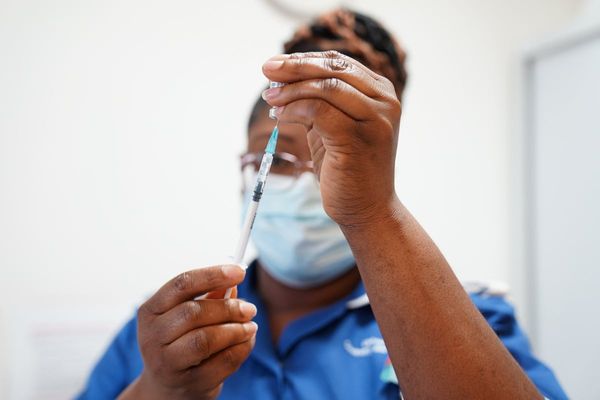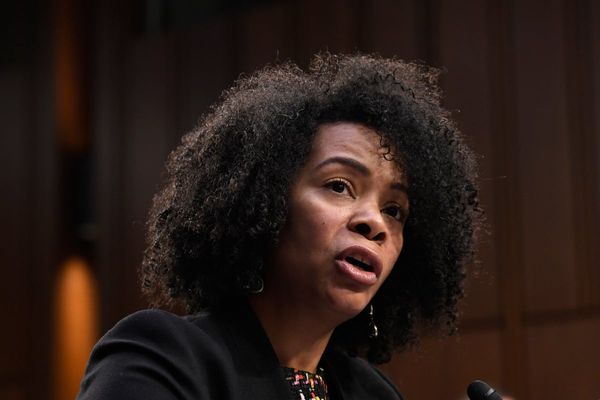Gov. Gavin Newsom announced in late June a $17 billion inflation relief package that would send money to millions of Californians.
Single tax filers will receive $350 if they earn less than $75,000 a year. Joint filers will get $700 if they earn less than $150,000. People that earn more money will receive smaller amounts, sent by direct deposit or debit card.
"That's more money in your pocket to help you fill your gas tank and put food on the table," Newsom said of the plan.
There are many critics of the plan who say the plan will actually make inflation worse by flooding the market with more cash. A Bloomberg opinion piece called the plan "economic illiteracy."
"It's not hard to see how this could contribute to an inflationary spiral, wrote Jared Dillan for Bloomberg, "inflation accelerates, the government hands out more cash, which pushes up prices even more, which encourages the government to hand out even more cash, and so on.
Q: Will California's inflation relief plan make inflation worse?
Gary London, London Moeder Advisors
No: This is a gimmick, because it won't really put a dent on relieving most people's inflation stress. It's just not enough money. But because it's not enough money, it also won't bid up inflation. My question is, if our state really has this much money in surplus, why is it not permanently reducing our income taxes?
Bob Rauch, R.A. Rauch & Associates
Yes: Throwing cash at state residents will stoke the flames of inflation. Alternatively, a reduction in taxes and regulations would create jobs, stimulate investment and grow our economy. Less government spending and more incentive to work and create jobs is a far better plan. The Newsom plan incentivizes people to "not" work, and will create a whole new bureaucracy and by definition causes spending to go up since debit cards will be money spent instead of saved.
Phil Blair, Manpower
No: Inflation has hit lower-income earners in Californians much harder than anyone. Any relief is good for them. Many will pay down debt that has collected from higher prices, which is not new purchases in the economy.
James Hamilton, UC San Diego
Yes: Inflation is caused by too much money chasing too few goods. This plan will boost consumer spending without bringing any more oil to refineries or any more computer chips to car manufacturers. However, I expect the effect on inflation to be relatively modest. If the government doesn't use the money to boost spending by consumers, it would use the money instead on other government programs that would also mean higher total spending.
Austin Neudecker, Weave Growth
No: We cannot spend our way out of inflation. I generally support direct stimulus checks for individuals in recessionary crises. In 2008, we should have supported individuals affected by the housing collapse. However, the current problem is ample demand, supply chain challenges, and international conflicts causing insufficient supplies. The California "inflation relief" plan feels like a political move to engender support rather than address the core problem.
Chris Van Gorder, Scripps Health
Yes: One-time payments will encourage additional spending, which will exacerbate the problem. The state can't fix global inflation issues outside of its control, such as higher energy and food prices, but it can address those it created, such as the highest gasoline tax in the country and burdensome regulations adding significantly housing costs. One possible approach would be for the state to keep the excess money in a rainy-day fund and use it to reduce taxes over time.
Norm Miller, University of San Diego
No: California does not control the national money supply so cannot impact inflation. Money spent by consumers replaces money spent otherwise by state government, although a reserve fund would have been much wiser for the state. At the same time untargeted checks are inefficient and nothing more than a temporary salve on the pain of fuel prices and inflation.
Jamie Moraga, IntelliSolutions
Yes: California should use their surplus in a more thoughtful way by reducing income taxes by 8 to 9%. This could lead to overall savings for all Californians. Instead, this inflation relief plan is likely to have the opposite effect, which can have unintended consequences (increased demand for products or services which then leads to higher prices). If the government continues to issue more money, then we face a vicious cycle of higher and higher inflation. In all honesty, this looks more like a ploy for votes.
David Ely, San Diego State University
Yes: Distributing $17 billion to Californians will boost demand for a variety of goods and services and is therefore likely to contribute to greater inflation. Moreover, the plan does not address any of the underlying causes of higher inflation. However, its impact on inflation is likely to be modest. Total personal income in California is approximately $3 trillion so the size of the relief payment is relatively small in comparison.
Ray Major, SANDAG
Yes: Pumping more money into an inflationary economy will cause more inflation. The fundamental cause of this inflationary cycle is due to the trillions of dollars pumped into the economy during the COVID crisis. Supply chain issues and the war in Ukraine may also be contributing factors. Handing out $350 to people earning less than $75,000 will not curb inflation, nor will it make up for the damage caused by record inflation on the standard of living in California.
Caroline Freund, U.C. San Diego School of Global Policy and Strategy
Yes: Sending cash to nearly all California residents will increase spending and boost inflation. The worst part of the proposal is that it is not well-targeted to those who need it the most. Couples that make half a million dollars annually would benefit. Instead, giving cash transfers to low-income households only would support those who are struggling with high prices, be more fiscally prudent, and have a negligible impact on inflation.
Kelly Cunningham, San Diego Institute for Economic Research
No: While a hugely inefficient process to redistribute wealth, in itself it is not inflationary to return some taxed money back to taxpayers. The amounts sent to individuals will make little difference after inflation increased so much the past year. Collectively shoveling money indiscriminately in October just before the election seems blatant vote-buying scheme. It will do nothing to resolve the underlying problems causing inflation, while poorly targeting relief to those most in need of help.
-------







